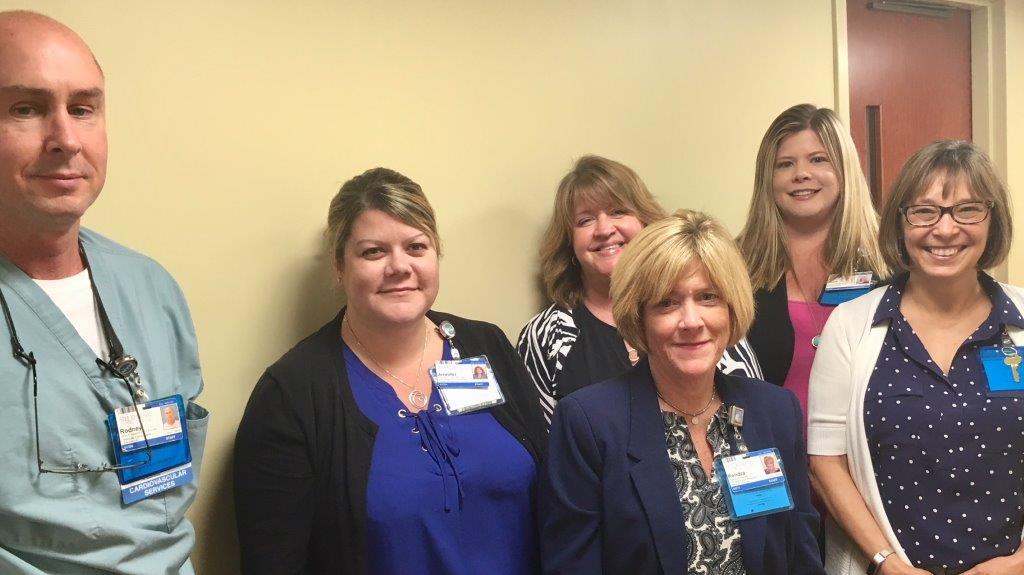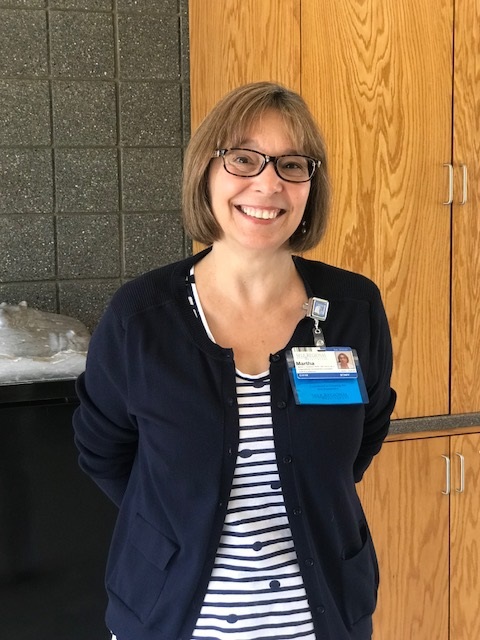
It’s not unusual to see respiratory therapists take on unique jobs or move into upper level management positions in their hospitals. But Self Regional Healthcare (SRH) may be one for the record books.
At this 322-bed facility serving seven counties in and around Greenwood, SC, you’ll find RTs working as everything from supervisor of noninvasive cardiology and manager of cardiovascular services, to manager of cancer services and vice president of professional services and chief quality officer.
A couple of physicians started out as respiratory therapists too, and their former CEO, M. John Heydel, began his career as an RT as well. He’s still so dedicated to the profession that he sponsors an annual scholarship for RT students at nearby Piedmont Technical College.
Great work environment
AARC member Martha Huddelson, BSRC, RRT, RRT-ACCS, AE-C, is a good example of how therapists at SRH are reaching beyond traditional RT borders. Now working as an organizational development consultant, she attributes the amazing diversity seen among RTs at her facility in part to the great work ethic created by and for RTs in the hospital.

Not only do these therapists steer clear of concurrent therapy, opting instead to take the time to teach their patients how to do their treatments correctly, they also work under protocols that allow them a fair measure of autonomy when it comes to changing therapies to best suit the patient’s condition.
“We have as much responsibility for assessing and recognizing critical situations outside the ICUs as we do inside the ICUs,” Huddleson said. Nurses call on RTs for expert advice on respiratory matters and she says therapists work hard to establish themselves as “being essential everywhere.”
Promoting from within
But the hospital itself gets a lot of credit for the opportunities given to RTs too. “It helps to be an independent hospital that focuses on creating the best experience for the patient,” Huddleson said.
She also notes SRH is the largest employer in the area and is located at least an hour away from any large city, which makes keeping good staff on board essential.
“I feel that job openings in the organization are not limited to advancement by only certain specialties and that the organization wants to keep good employees,” she said. “SRH recognizes the value in promoting from within.”
Her own role as organizational development consultant is a great example.
“Many of the educational responsibilities I had in the RT department have continued in this role,” Huddleson said. “New responsibilities also include developing and facilitating annual competency training and continuing education, as well as new team member orientation for both clinical and non-clinical staff in conjunction with the four other development consultants in my department.”
Prepared for anything
The respect RTs receive at this hospital is a far cry from that seen in some of her previous experiences in the profession.
“I remember a doctor asking me in response to a question I had about a patient, ‘Why does an RT have to know that?’” Huddleson said. “I’d been told obnoxious things, but never when I was trying to learn something new. It was one of the most hurtful things I remember in my career.”
Huddleson says some of the younger RTs on staff at SRH may not even know about all the RTs who have risen up the ranks at their hospital.
“After finding out, though, you can’t help but think that your future may not be defined by who you are at this moment and this profession can prepare you for just about anything,” she said.
Seeing so many RTs rise to new heights at SRH is not only heartwarming but inspiring and shows RTs can earn plenty of respect if they just work at it.
“It doesn’t happen overnight,” Huddleson said. “Prove them wrong by your actions — by taking really good care of the patient.”





